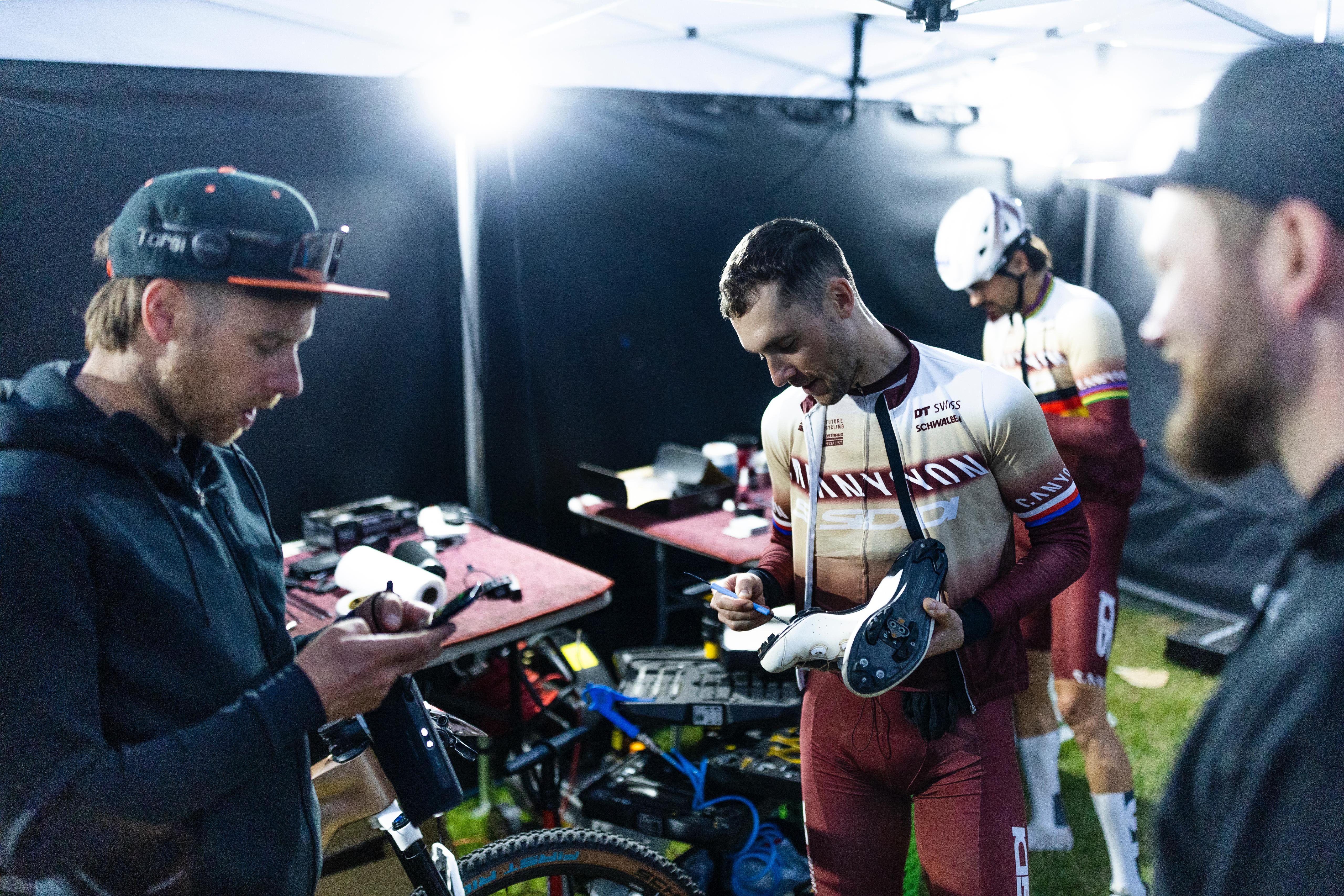Cape Epic is considered the toughest stage race for pairs in mountain biking, attracting the world's top riders to South Africa every year. This eight-day race, often called the "Tour de France of mountain biking," is notorious for its extreme difficulty. Riders must tackle long, technically demanding routes while also enduring harsh conditions such as heat, dust, and rugged terrain. The race demands peak physical preparation from the riders and top-notch technical support, with professional mechanics ensuring that bikes and equipment withstand the immense strain.
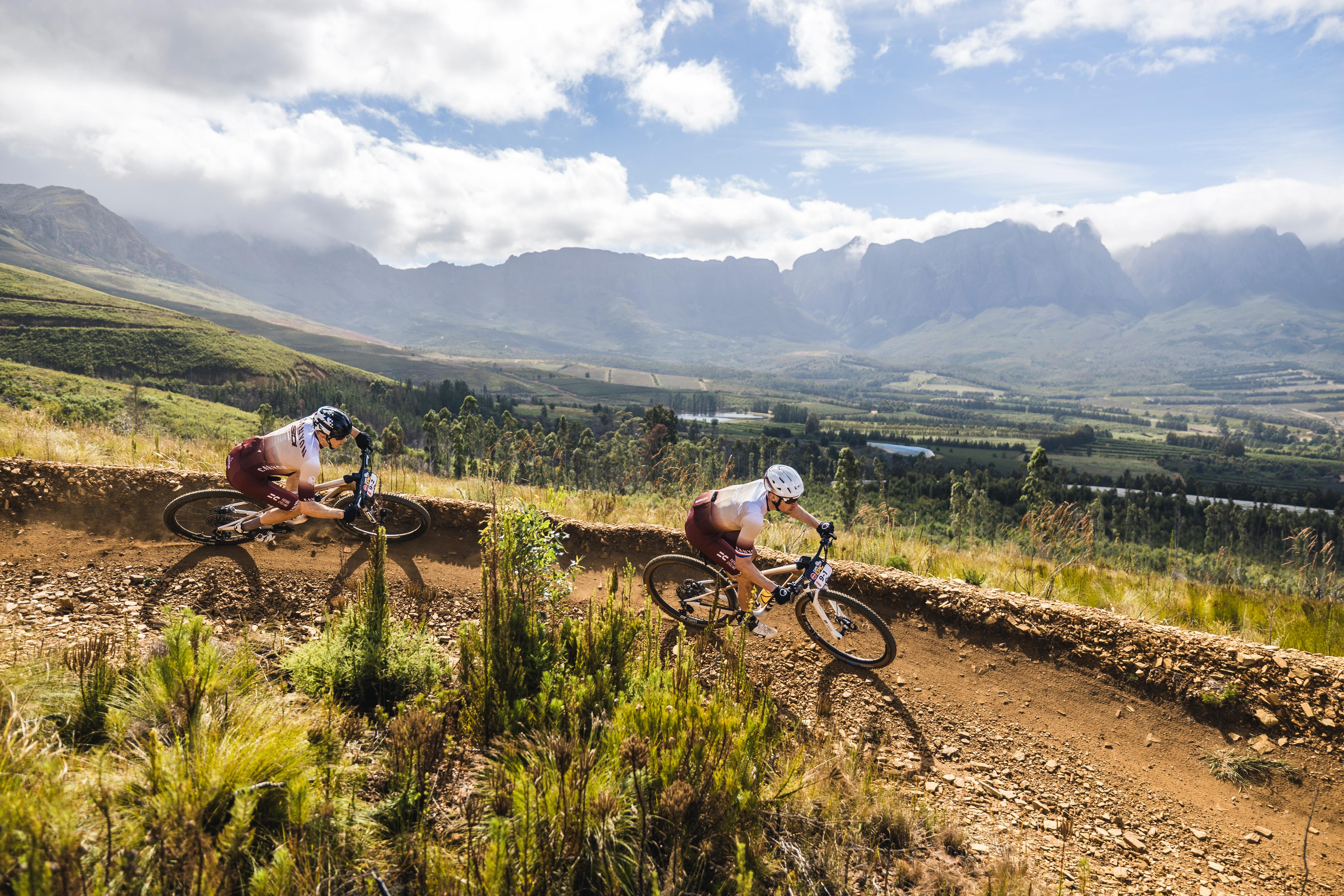
The Mechanics Behind Cape Epic
We spoke with Jan Bekr, a mechanic for the Canyon SIDI MTB team, about the specific demands of servicing bikes during Cape Epic. This year, the team sent two pairs to South Africa: Andreas Seewald and Marc Stutzmann (4th place), and Martin Stošek and Petr Vakoč (8th place).
Introducing Jan Bekr
"Bikes have become both my job and my passion. I've been around bikes since childhood, racing downhill and servicing my own bikes at home. Later, I combined my studies in mechanical engineering with a part-time job at Shaman Racing, where we designed and manufactured bike components. I loved the process—I could design something in CAD, create a prototype, and test it on my own bike.
A few years in, we lost a mechanic, so I swapped my office chair for a work apron and stepped into the workshop. I never looked back. Through a friend, I joined Kristian Hynek's Futurecycling team, where I faced my biggest challenge yet—and succeeded. A few years later, we moved the store to a bigger space in Modřany called ‘Zahálka,’ where we now focus on high-end servicing and custom bike builds. I enjoy learning new things, keeping up with trends, and working on unique projects. Custom is custom!"
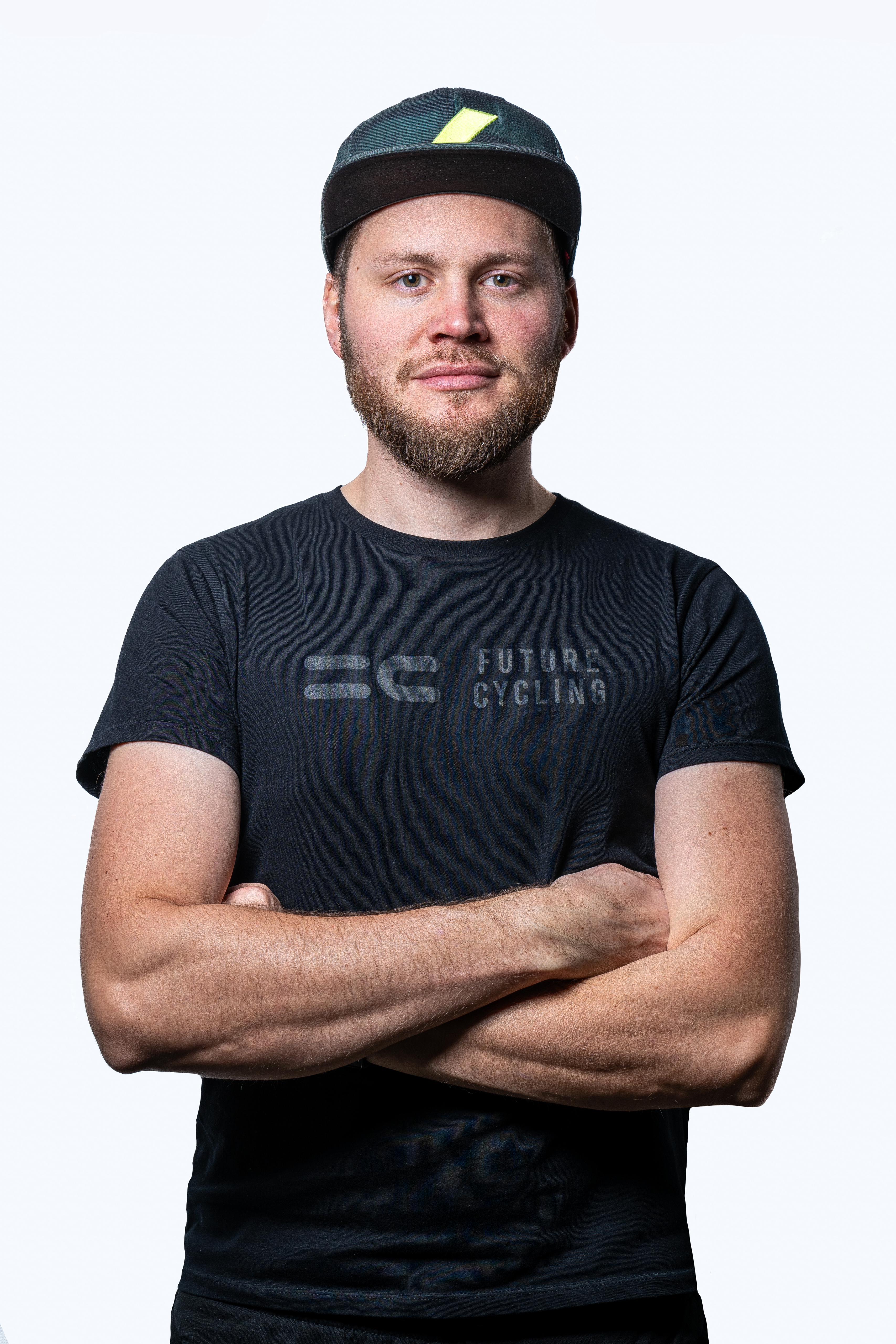
How many Cape Epics have you worked on?
"This was my third time at Cape Epic. I first went in 2021, looking after the bikes of two amateur riders, David Trávníček and Martin Zeithammer. I skipped the next year because my son was born in early February, and I didn't want to leave my wife alone for three weeks. In 2023 and 2024, I worked with the Canyon SIDI MTB team (which was called Canyon Northwave in 2023).”
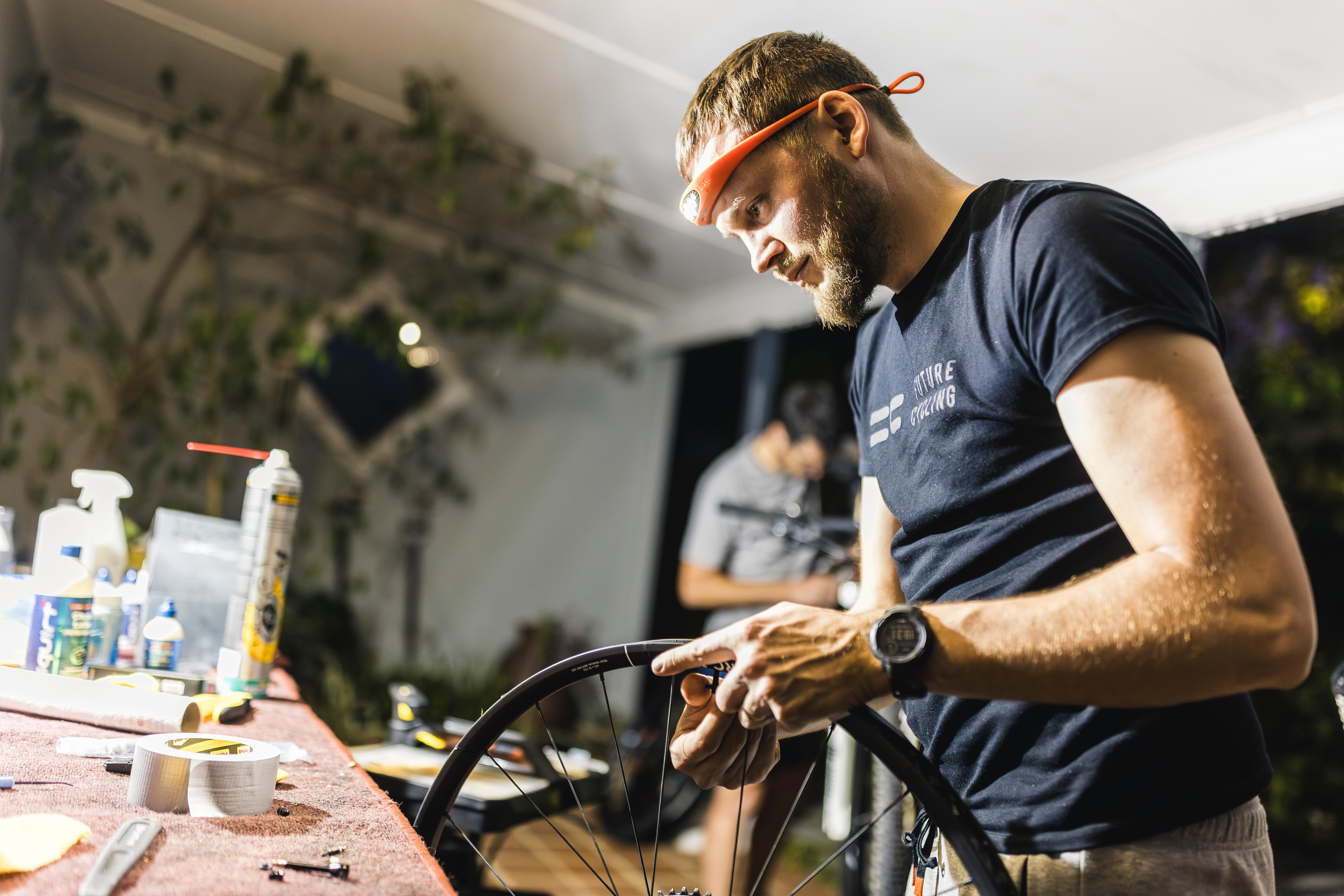
How many mechanics were responsible for the Canyon SIDI MTB team’s riders?
"There were two of us. The lead mechanic, Robert Novotný (a.k.a. Giovan), works with the riders year-round and travels to races with them. I was the second mechanic for Cape Epic. Most of the year, I work at Futurecycling’s service center.”

How does servicing a bike for Cape Epic differ from regular bike maintenance?
"Before the race, bikes are often completely rebuilt or given a full service to make them as good as new. Cape Epic is an expensive race, and it would be a huge shame to risk losing it over a cheap component failure.”
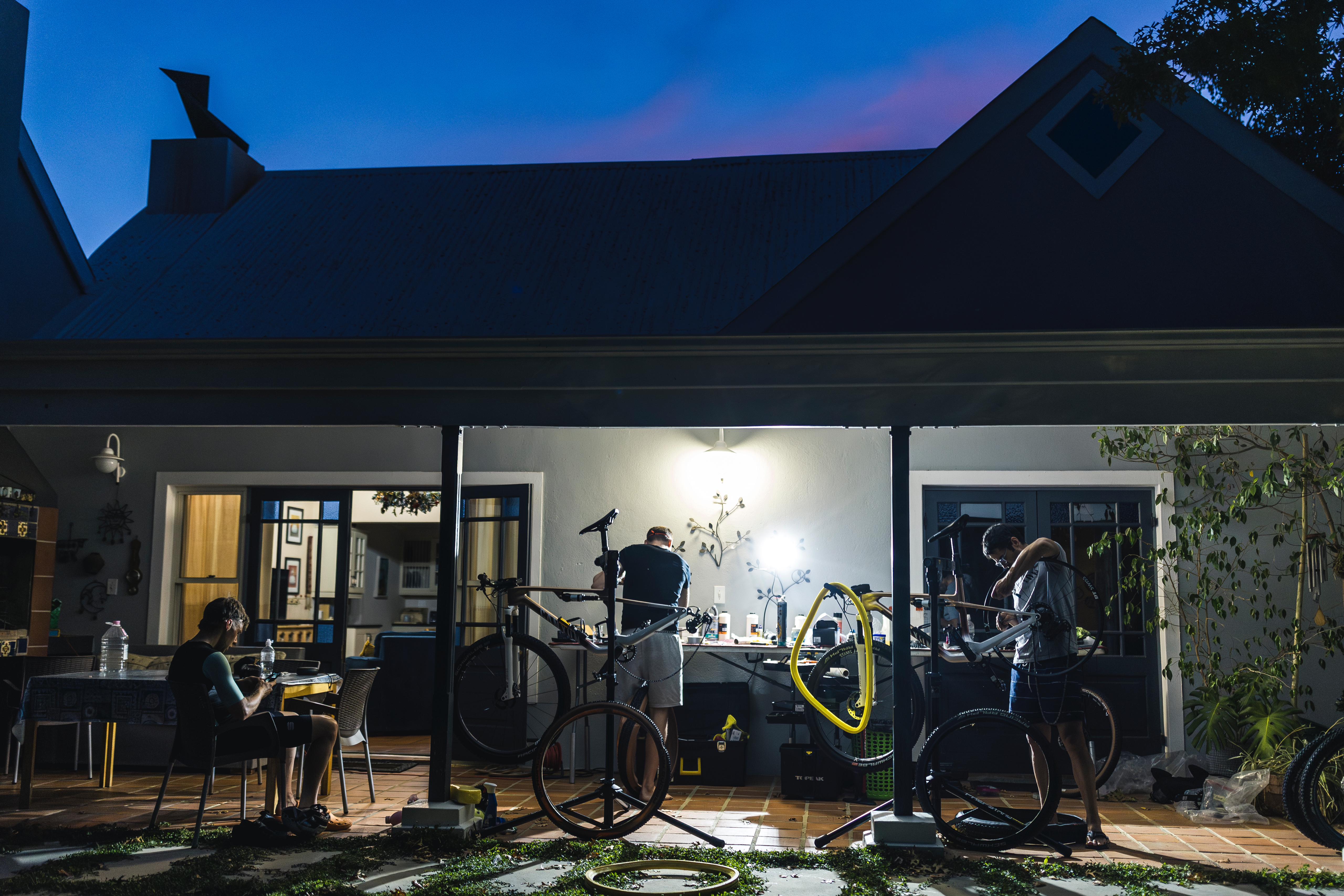
Does bike setup change depending on the stage’s terrain and conditions?
"Definitely. Riders often adjust chainrings based on the stage profile or change tire width, rubber compound, or tread pattern. Brake pad choice is also crucial. Last year, we had three fully rainy stages—African sand mixed with water and mud destroys brake pads in no time. It’s not uncommon for riders to finish a stage with practically no brakes left!”
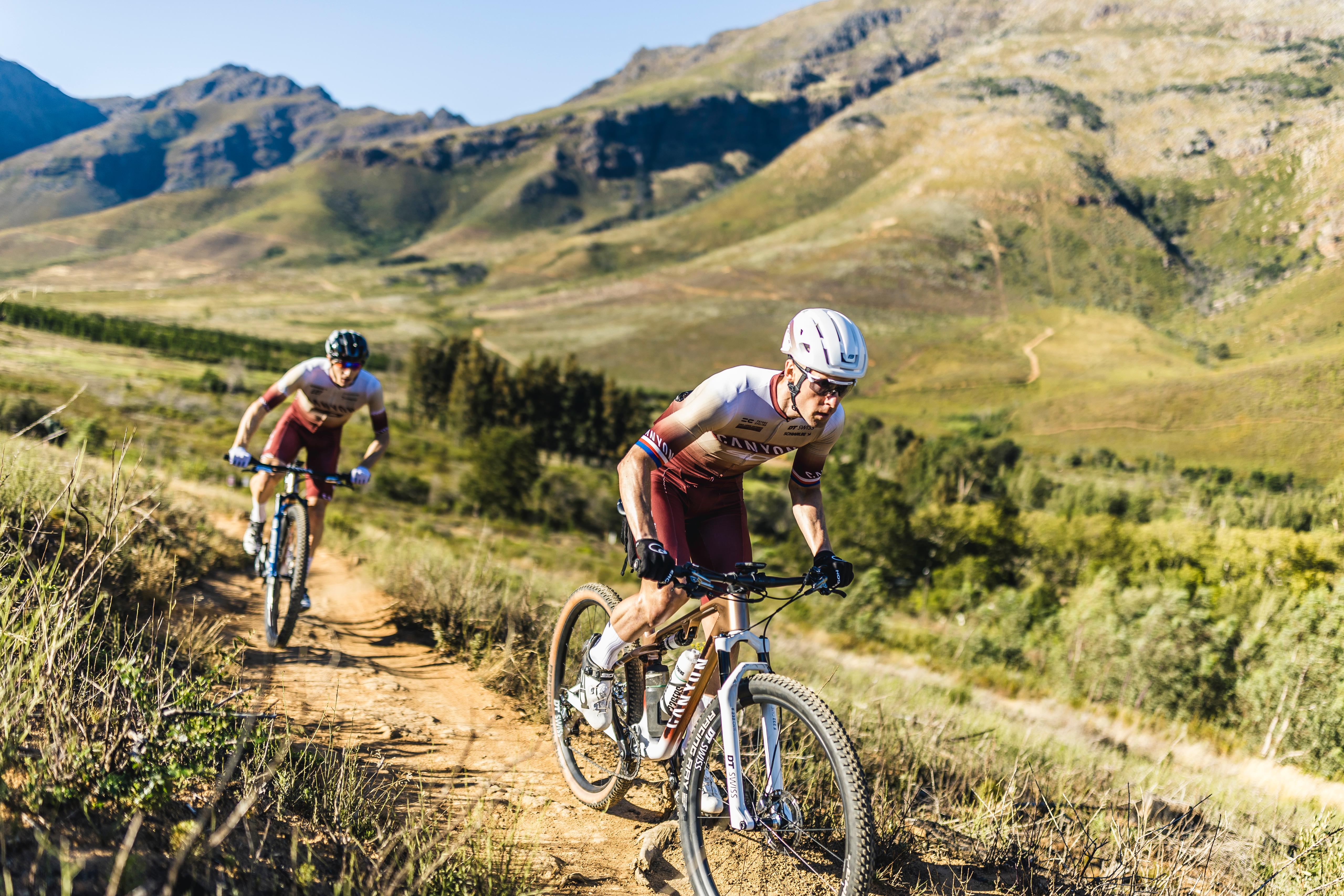
How many spare bikes and components does the team need to complete the race?
"Pro riders have designated Feed Zones (FZs), usually three per stage. Each team has a box at these zones containing tools, spare parts like derailleurs, brakes, chains, pads, CO2 cartridges, tire plugs, and complete spare wheels. Riders must repair their bikes themselves—outside assistance is not allowed. Every spare part needs to be stocked in triplicate, plus additional spares in the depot. Equipment from FZs isn't returned until after the stage ends, usually around 5 p.m.”
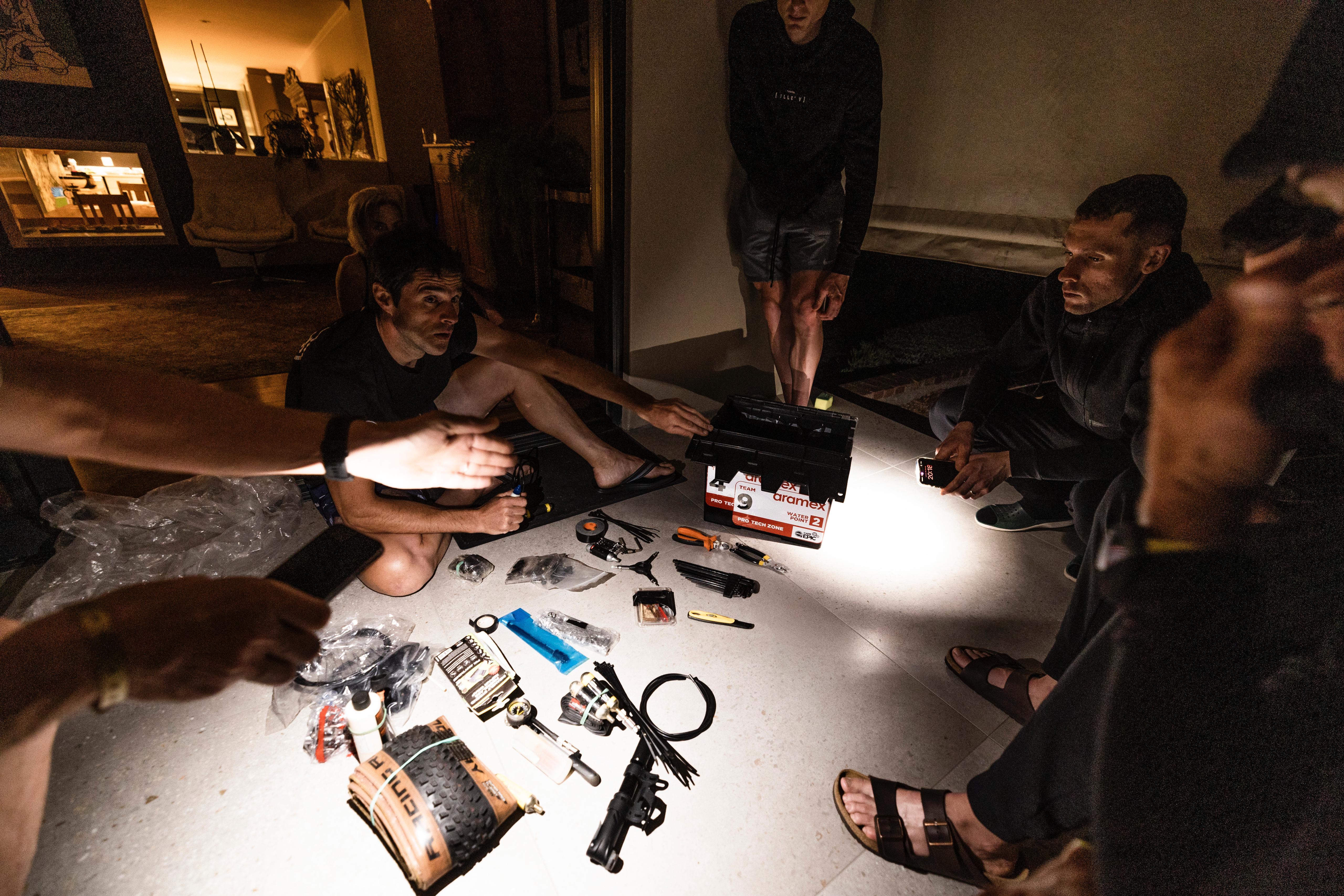
How many complete bikes does Canyon provide for the team during Cape Epic?
"For four riders, we have four primary race bikes, plus two additional complete bikes. We also bring an extra frame, rear triangle, and a range of spare parts like derailleur hangers, bearings, and pivots. Bike swapping isn't allowed during the race—each rider starts with a stickered frame, and unless it's a serious issue like a broken frame, they must finish on the same bike.”
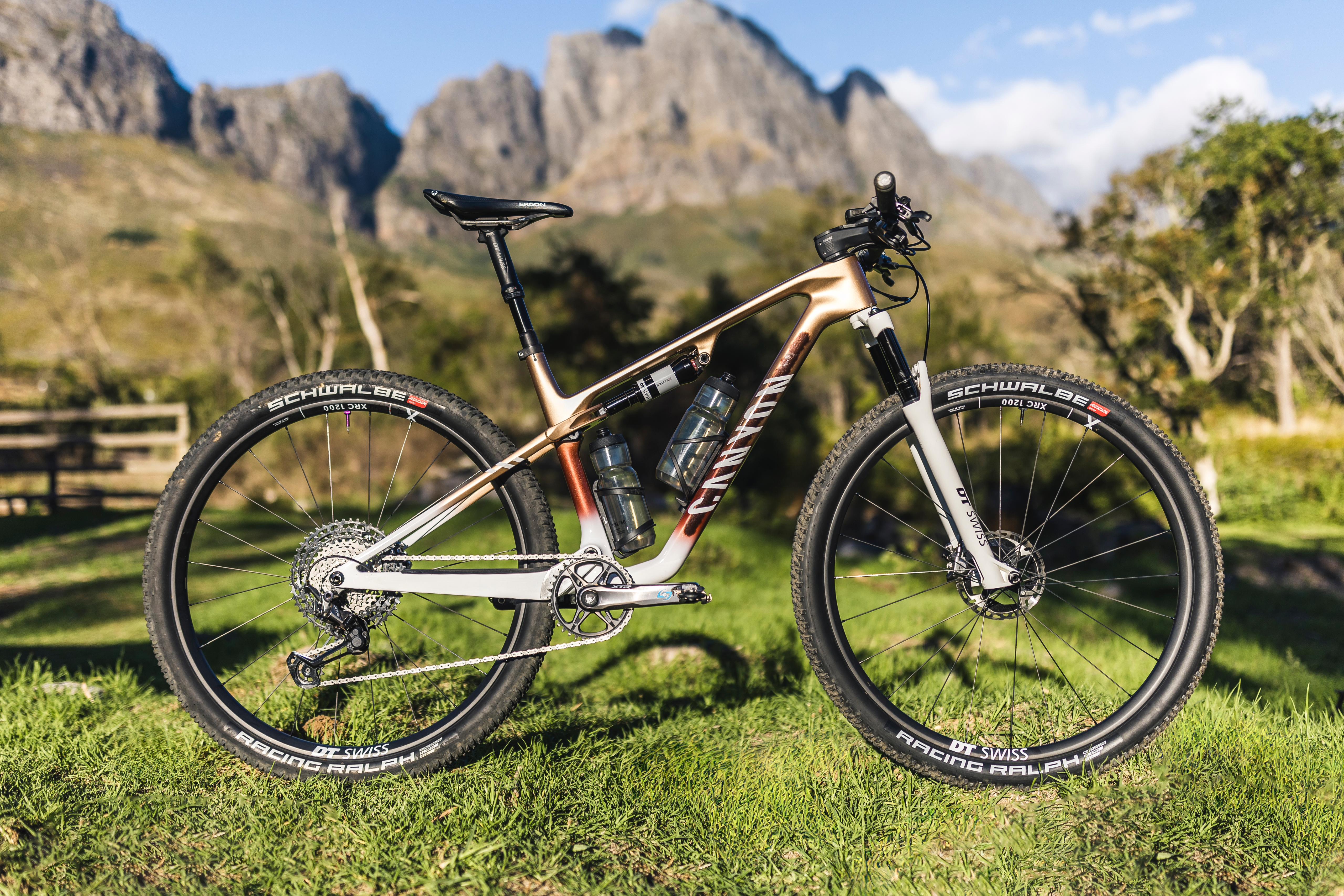
Which components endure the most wear and how often do they need replacing?
"It depends on the stage and conditions. Tires are critical—South Africa is full of thorns, so ultralight tires and tubes are out of the question. Typically, tires are changed every two to three days. Chains and brake pads require frequent checks and replacements—last year’s muddy conditions meant daily pad changes, whereas this year’s dry conditions allowed them to last the entire race.”
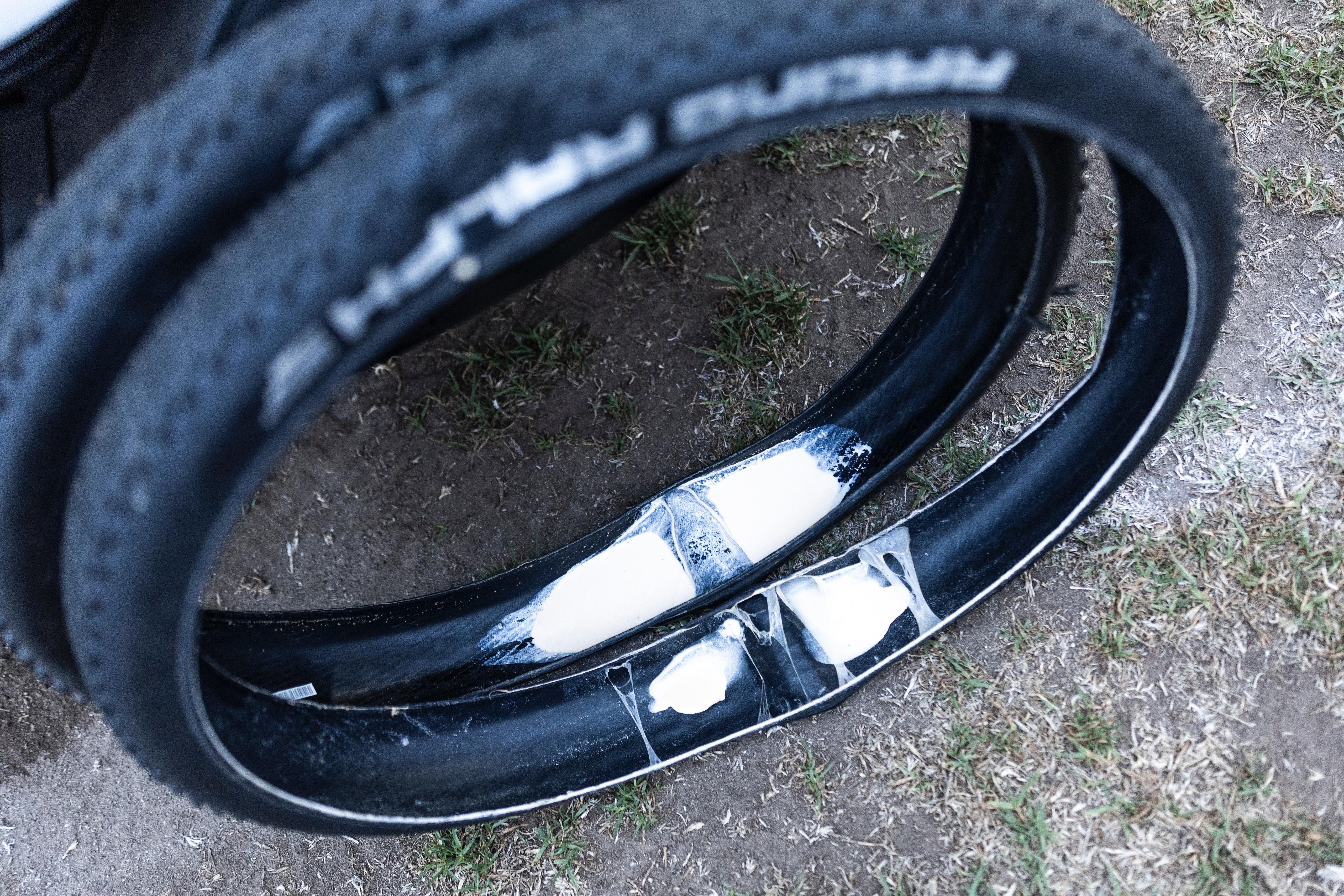
How do you prepare for mechanical issues during the race when outside help isn’t allowed?
"As mechanics, we can't assist during stages, so we train the riders to quickly fix issues using their FZ supplies. Each pair carries essentials like CO2 cartridges, tire plugs, a chain tool, a quick link, a multi-tool, an inner tube, and a mini pump. The team also runs an A and B squad system, so riders can help each other if needed.”
